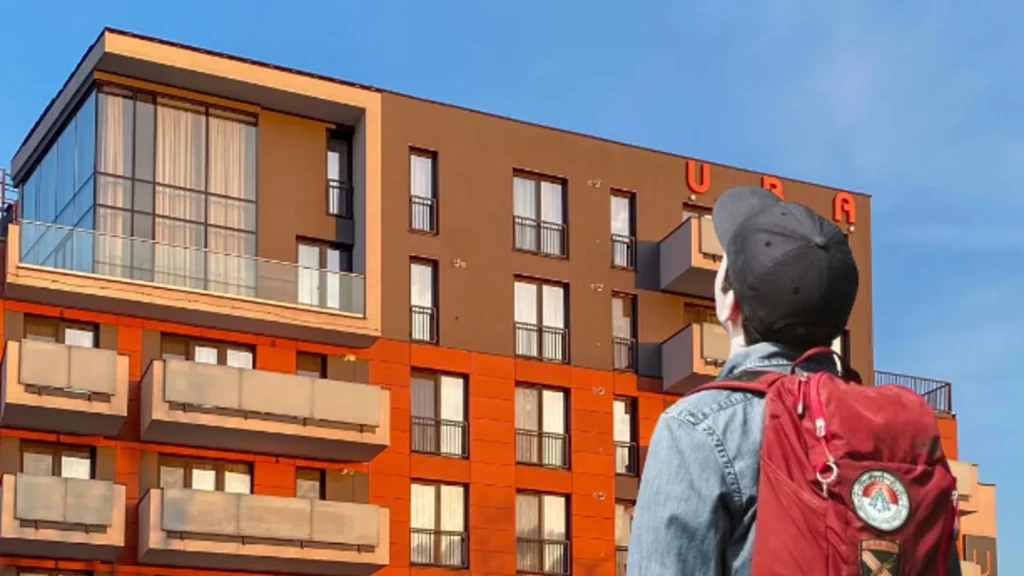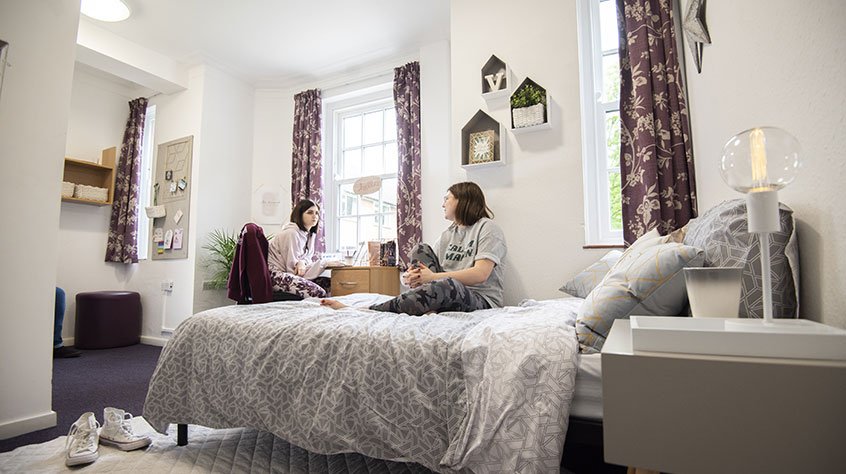Sorting out accommodation is just one of the many things international students need to take care of before starting their studies. But how can students steer clear of accommodation scams?

Finding a safe, affordable place near campus is a priority for all students. For international students, it’s even trickier since they usually can’t visit the place in person before booking. Sadly, some people take advantage of this and run accommodation scams.
What exactly is an accommodation scam?
An accommodation scam is when the room, flat, or house that’s advertised to students doesn’t match what they see when they arrive—or worse, it never existed in the first place.
There are a few ways these scams show up. One common scam involves fake property listings. Here, someone pretends to be the property owner and asks the student for a holding deposit to secure the place.
If the student asks for more pictures or a video, the “owner” might say they’re abroad or sick and can’t provide more details. Once they get the money, they vanish and can’t be reached again.
To avoid falling into this trap, pay close attention to the listing. Scammers often use photos copied from real student housing websites, along with the property’s real address and details. This makes the listing seem legit—especially since searching the address might pull up the same images.
Another version of this scam involves a real rental property. In this case, the scammer rents the place for themselves, then advertises it to unsuspecting students. They’ll offer a tour or share extra photos and videos to make everything seem authentic.
Acting as the “owner,” they’ll then ask for a deposit and the first month’s rent right away. But when the student arrives with their bags, the keys don’t work, and the scammer is nowhere to be found. Sometimes they even trick several students using the same property, leaving everyone stuck without a place to stay.
Other scams to be aware of include listings using images from unrelated places, or fake websites featuring properties that don’t actually exist. Always cross-check any listing you find on multiple platforms.
How can I spot an accommodation scam?
Be careful when looking at housing options. Look out for these warning signs:
- The room looks great but is priced way below the market average.
- There’s only one photo of the place.
- All the photos are taken from the same angle.
- There’s no mention of facilities or nearby services.
- You see the same photo being used in multiple listings.
- The “landlord” or “agent” avoids giving details when asked.
- They’ll send extra pictures or info but won’t agree to a phone or video call.
- They try to rush you into paying a deposit or holding fee.
- They ask for money just to prove you’re interested.
What should I do if I think something’s off?
When you get information about a property, always ask to see it in person—or over a live video call if you’re not in the area. Look up the address online and use Google Street View to double-check the location. You can also search for the landlord or estate agent online to check their credibility.
Try to confirm as many details as you can, and never send money after just one conversation—especially if they’re pressuring you.
The safest way to check whether the landlord or agency is legitimate is to talk to your student union. Let them know who you’re dealing with—they’ll likely know if there have been scams reported before, and they can also give you a list of trusted contacts. It’s also helpful to connect with other international students and hear how they found their accommodation.
What does legitimate student accommodation look like in different countries?

United Kingdom (UK)
Most UK universities provide on-campus housing for first-year students, and you can apply directly through your university.
In later years, students usually move into private rentals. A good place to look is Student Accommodation UK, which lists housing options all over the country. You can filter results by city, region, university, and the number of people you’re planning to live with.
Student unions often organise housing fairs throughout the year, where local landlords and agencies come to speak directly with students. You can learn more in our guide to finding accommodation in the UK.
United States (US)
Just like in the UK, US universities typically offer on-campus dorms to first-year students, usually shared with a roommate. You can apply through your university’s student portal, where you can also see the options available.
After the first year, students often move off-campus, especially once they know the area. Most universities have partnered websites run with student unions to help students find safe, verified listings. For those who don’t want to live alone or with housemates, there’s the American Homestay Network, which helps arrange homestay options.
Australia
There are four main types of student housing in Australia: purpose-built student accommodation, homestays, private rentals, and residential colleges.
Most students live off campus—about 90%—either renting privately, living with friends, or staying with host families. On-campus options exist but are limited and vary by university, so be sure to check with your uni once you’ve accepted your place.
Two reliable homestay agencies in Australia are Australian Homestay Network and Global Experience. Private rentals are often posted on student noticeboards and are available for individuals or groups. You can also look for listings on Flatmates.
Canada
In Canada, you’ll find a mix of dormitories, off-campus rentals, and homestays. Most universities offer dorm rooms for first-year students. One trusted homestay provider is the Canada Homestay Network.
To find off-campus housing, the best approach is to contact local landlords. Your university’s student union can help you connect with reputable agencies and property owners to ensure you’re getting a safe and legit place to live.
Many international students use temporary housing at first, giving them time to make connections and check out properties in person. A popular option for short-term stays is Premiere Suites.
France
In France, students can stay in halls of residence, rent privately, or choose homestays.
You can apply for campus housing through your university’s website, but off-campus living is more common. Public residence options are available through CROUS, a network of 26 regional student services that manage accommodation. Another platform is Studapart, which helps students book verified places either online or in person.
Germany
Most German universities don’t offer much on-campus housing, so most students rent privately. If university accommodation is available, you’ll need to apply early.
A lot of students wait until they arrive in Germany to look at options, as many rentals are unfurnished. During this time, students often stay in hostels, hotels, or B&Bs while they search for something permanent.
Students can also contact their Studentenwerk (student union) to apply for student residences or get help finding private rentals.
Netherlands
Several Dutch universities partner with local housing providers. International students can apply through their university.
DUWO is the oldest student housing organisation in the Netherlands and offers both furnished and unfurnished rooms in cities like Amsterdam, Delft, The Hague, Deventer, and Leiden. Housing Anywhere is another good option, connecting students with verified landlords. Lastly, Nestpick was started by students and offers housing in cities including Amsterdam, Delft, The Hague, Maastricht, Rotterdam, and Utrecht.

